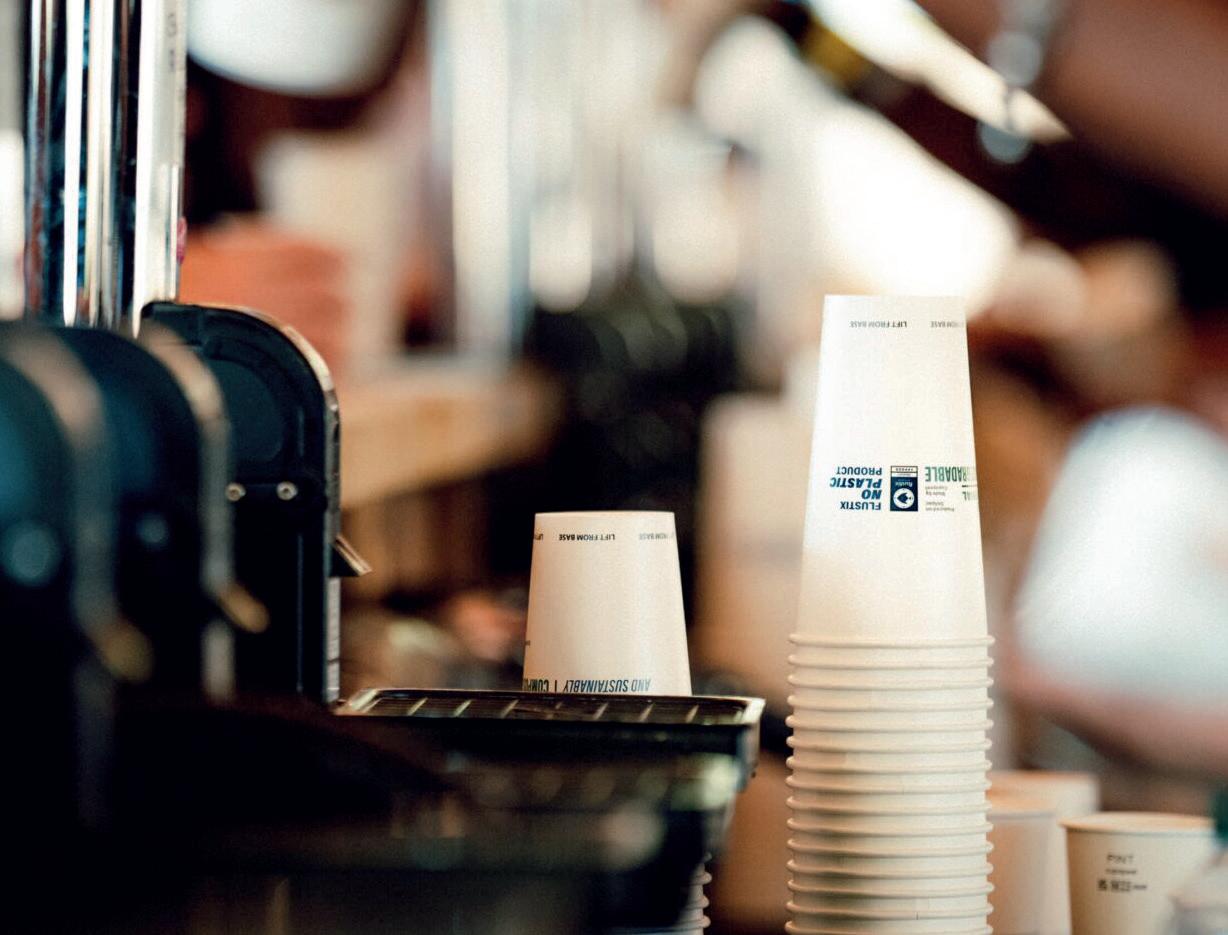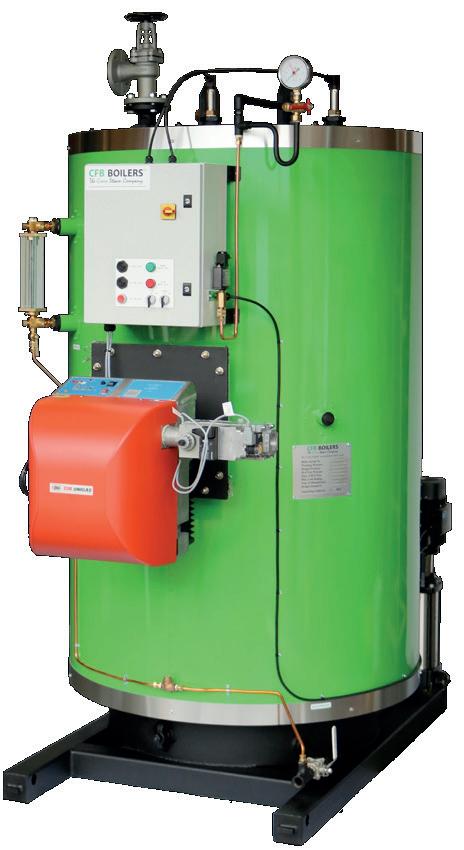
4 minute read
‘Tis the Saision
Elusive Brewing’s Andy Parker, the current Guild of British Beer Writers’ Brewer of the Year, takes a look at Saisons, a popular style with homebrewers, and explores this classic Belgian category with some insight from Lost and Grounded’s Alex Troncoso who’s seasonal Saison D’Avon beer is a perfect example of this style…
Lost and Grounded Brewers: Saison D’Avon

Saison (meaning ‘season’ in French) is a broad church of a style, perhaps better considered as a family. Saison originated in the Wallonia region of southern Belgium where they were traditionally brewed in the winter months to be served as refreshment for seasonal farm workers (les saisonniers) in the warmer months. In the glass, a Saison is typically effervescent in carbonation, pale to deep gold in colour and laden with fruity, spicy and earthy aromas that carry over the palate. Typically dry and crisp, the humble Saison is a very refreshing beer to enjoy on a sunny day.
of ingredients, acidity, dryness and somewhat restrained bitterness, as too much conflicts with the acidity and phenols if present.”
Targets
OG 1.059
FG 1.010
ABV 6.5%
Colour 10-12 EBC
Bitterness 28-32 IBU
Mash at 64C for 60 minutes
If working with equipment that allows for a stepped mash (such as a Grainfather) then mash in at 52C (5min), then 62C (40min), 67C (10min), 72C (20min), then raise to 78C for mash out.
Grist
5.25kg Pilsner Malt (German or Belgian)
250gm Flaked Oats
250gm Belgian Wheat Malt or Flaked Wheat
Hops & Spices
Brewers Gold @ 60 mins - 15g (4.9% AA)
Chinook @ 10 mins - 15g (11.2% AA)
Savinjski Goldings @ 10mins50g (2.3% AA)
Grains of Paradise (ground) @ 10min – 2g
The Saison style is a fantastic one for homebrewers to tackle, both novice and more experienced alike. My second ever all grain recipe was a Saison and it turned out really well. It was based on a clone recipe for Saison Dupont but used Nelson Sauvin hops from New Zealand with Lallemand’s Belle Saison yeast to take it in a more new world direction. This recipe evolved into Lord Nelson which we still brew today. Saisons may especially be of interest to those who lack fine grained temperature control in their fermentation set up as the yeast strains are typically very forgiving and versatile. Belle Saison loves a warmer fermentation temperature and will happily work as high as 30C.
Many years before co-founding Bristol’s highly regarded Lost and Grounded Brewers with partner Annie Clements in 2016, Alex Troncoso’s early forays into brewing included dabbling in Saison and other Belgian styles. Amongst many successes he was the proud winner of the Belgian Specialty category in the 2003 Vicbrew (Melbourne) state home brewing competition in his native Australia!
It was a trip to Europe soon after this that cemented their love of Belgian beer and brewing methods, as Alex explains: “Annie and I lived in Brussels for a short spell in 2006/2007 and that was our true introduction to Belgian beer. Prior to that we had of course drank Belgian beers but only in limited quantity as they weren’t widely available in Australia. Whilst not a Saison, my epiphany beer back in 2007 was Rochefort 8. it is a brewing master class in how to balance malt, bitterness, yeast character and ABV. I still think about that beer! Saison Dupont or St-Feuillien Saison are the two benchmark Saisons for me.”
Whilst best known for their flagship Keller Pils Lager, Lost and Grounded produce exemplary Belgian styles including their seasonal Saison D’Avon. “We love the diversity that Saison offers as a style – from “clean” Saisons such as Saison Dupont, through to mixed fermentation offers from the likes of Burning Sky.” said Troncoso. “For me I like a Saison to offer balance without being too aggressive in phenolic character, with a considered use
Lost and Grounded’s Saison D’Avon is perhaps my favourite example brewed in the UK. It has a delightful yet delicate floral character with a softness that somehow doesn’t take away from the snappy and refreshing finish. Alex explains the back story: “Saison D’Avon started out as a one-off beer that we brewed for the Independent Manchester Beer Convention in 2016, with the name being a bit of a joke. The brewery is based across the street from the banks of the River Avon in Bristol – it sounds romantic, but our section of the river is tidal, and half the time is a mud flat! Saison D’Avon became a full-time core beer in 2017 and has been a labour of love ever since. All our Belgian-style beers have continually evolved due to us forever seeking the right yeast strain that has restrained-to-no phenolics, attenuates well, flocculates predictably and isn’t diastaticus (a wild strain, present in many Saison yeasts) - it seems that it is almost impossible to find that combination!”
Sometimes more traditional types of hops work best in certain styles and Saison is definitely in that category.
Like all of their beers, Lost and Grounded’s take on this classic style is well considered, leading to a highly polished end product. “The base of Saison D’Avon is the same as the original – Pilsner malt, with a touch of wheat and oats.” Troncoso continues: “We use Brewers Gold hops for bittering with Chinook and Savinjski Goldings for late the addition, to around 32 IBU. We use a touch of Grains of Paradise late on which lend a floral edge. However, the yeast is now Bastogne (White Labs WLP510) which is used for the majority of our Belgian styles. It fits really well with our rendition of a Saison, is very soft with subdued “Belgian” character (i.e. not spicy) with more focus on fruity esters. We love it!”
Asked about tips for perfecting the style, Troncoso proffers: “I would say to not try and over complicate the beer – don’t add too much (especially bitterness). Pick a yeast you tend to like or sounds like you’ll like. Don’t just use “X” strain because a book says you should. Sometimes more traditional types of hops work best in certain styles and Saison is definitely in that category. In terms of water treatment, we use a combination of Calcium Chloride and Calcium Sulphate with the water profile largely in favour of chloride at a ratio of 2-3:1.”










